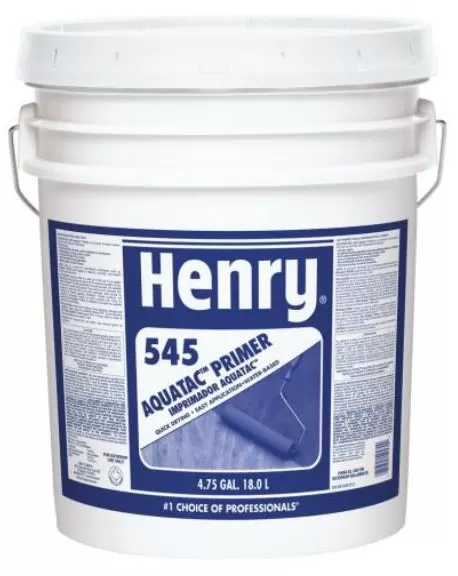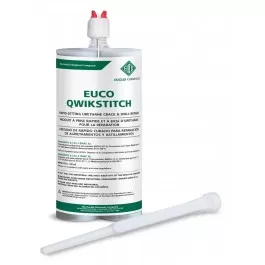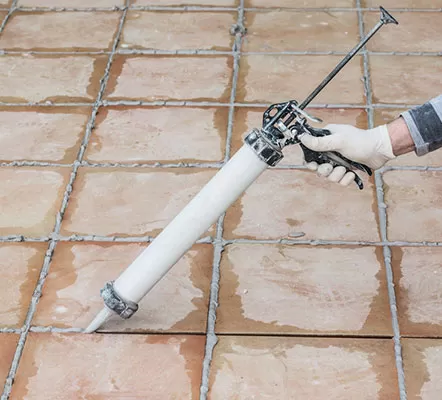Blog
The Best Waterproofing Sealant: Exploring Different Types
If you’re looking for the best waterproofing sealant to protect your home from water damage, you’ve come to the right place. In this guide, we’ll look at the different types of sealants available and give tips to select the best one.
What Is a Waterproof Sealant?
A waterproof sealant is a material applied to surfaces to help prevent water from seeping in and causing damage. Sealants can be applied to walls, windows, doors, roofs, and other home areas where water can accumulate and cause damage. These sealants form a barrier between the surface and the water, preventing water from seeping in and damaging the home.
Types of Waterproof Sealants
With so many different sealants available, deciding which is best for your needs cannot be easy. Let’s discuss the different types of waterproof sealants and help you decide which type is best for your project.
Silicone Sealants
Silicone sealants are easy to apply and remove, making them the perfect choice for many applications. They are also non-toxic and non-flammable, making them safe to use in many settings. The sealant is available in various colors, textures, and sizes, allowing you to find the perfect fit for your needs.
It is also highly resistant to UV radiation, making it an ideal choice for outdoor applications. Silicone sealants are also relatively inexpensive, making them an excellent choice for DIY projects and small repair jobs.
Acrylic Sealants
Acrylic sealants are one of the most versatile and widely used. From sealing windows and doors to providing a watertight seal for showers and baths, acrylic sealants are important in many applications. This combination helps to create an impermeable seal that is strong, flexible, and durable. Acrylic sealants can also be applied in one easy step, making them a great choice for DIYers and professional contractors.
Urethane Sealants
Urethane sealants are a type of adhesive material that is used to seal cracks and joints in various kinds of construction and repair projects. Urethane sealants are highly durable and offer superior adhesion and flexibility to traditional sealants such as silicone and acrylic. They are also weather-resistant, making them ideal for outdoor applications.
Polyurethane Sealants
Polyurethane sealants are a type of sealant that provides a strong, airtight seal that is ideal for a variety of applications. Polyurethane sealants are extremely versatile and can be used for various applications, such as air sealing, water sealing, and soundproofing. They are also highly resistant to water, moisture, and UV light, making them an ideal choice for outdoor applications.
Epoxy Sealants
Epoxy sealants are an incredibly versatile and durable material used for various applications. They are composed of two components, epoxy resins, and hardeners. When these two components are mixed, a chemical reaction creates a strong, rigid bond highly resistant to various physical, chemical, and environmental conditions. As a result, epoxy sealants are commonly used in the construction, automotive, aerospace, and marine industries.
Selecting the Right Sealant for Your Home
Selecting the right sealant for your home is an important decision. Not only does it protect your home from the elements, but it also adds an aesthetic appeal. But with so many different types of sealants, it can be hard to know which one is right for your home. Here are few tips to help you make the right choice:
- Consider the Climate: Different sealants are better suited for different climates. For example, if you live in an area with a lot of rain or snow, you’ll want to pick a sealant resistant to moisture. On the other hand, if you live in an area with excessive sunlight, you’ll want to choose an adhesive designed to withstand heat and UV rays.
- Think About Durability: Sealants differ in durability and how long they will last. If you want a sealant that will last for many years, you’ll want to choose one designed for long-term protection.
- Choose the Right Color: Sealants come in various colors, so you’ll want to choose one that matches the color of your home. If you’re unsure which color to pick, you can always get a sample and test it before buying.
- Understand the Maintenance Requirements: Some sealants require regular maintenance, while others are designed to be low maintenance. If you don’t want to deal with regular upkeep, pick a sealant that requires minimal maintenance.
- Consider Your Budget: Sealants come in a wide range of prices, so it’s important to consider your budget when selecting. If you’re looking for a high-quality sealant that won’t break the bank, you can always shop to find one that fits your budget.




